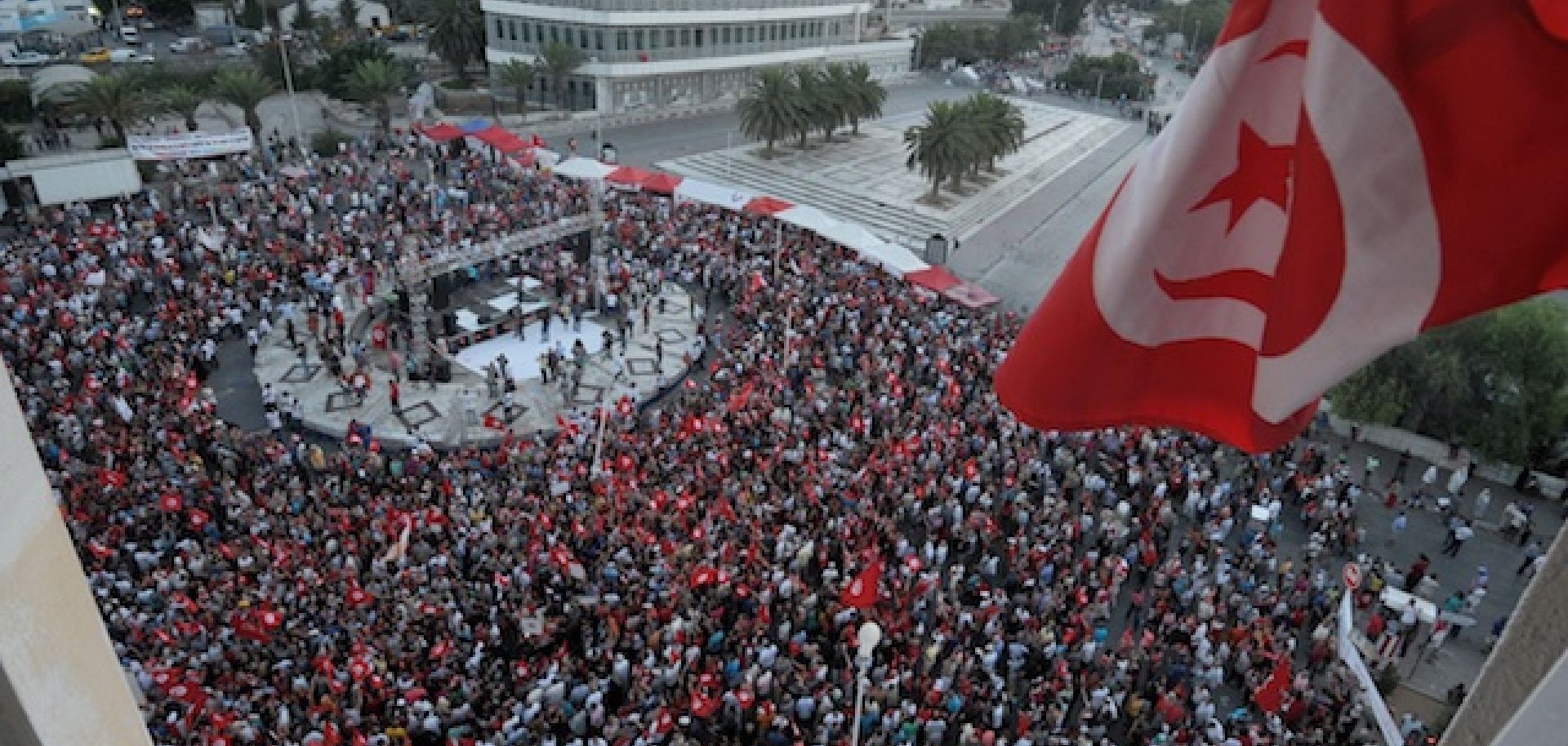ASSESSMENTS
In Tunisia, Instability Continues
Nov 21, 2013 | 11:14 GMT

(FETHI BELAID/AFP/Getty Images)
Summary
The Arab Spring may not have affected Tunisia as badly as it did Syria, Libya and Egypt, but it nonetheless left the North African nation with a challenging future. The country is beset by political infighting. On Nov. 18, negotiations resumed between Tunisia's two main political parties, the Islamist Ennahda party and the opposition Call for Tunis, but these talks do not necessarily mean the parties will settle their grievances anytime soon. The transitional government headed by Ennahda is also poised to step down in response to nationwide strikes, protests and uprisings that have marred Tunisia's transition to democracy.
More important, the country has struggled to maintain security in an increasingly unstable region. Militancy is a growing concern, as is the destabilization of neighboring Libya. Indeed, achieving political consensus in Tunis will be difficult, but ultimately the largest challenge Tunisia will contend with is the rise of regional militants operating within its borders.
Subscribe Now
SubscribeAlready have an account?
